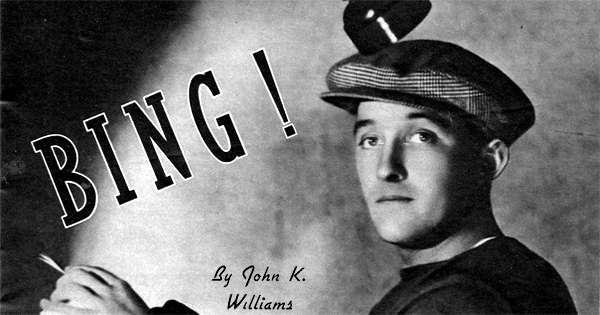What a career Bing Crosby had. Is there anyone in popular culture who got his start in the 1920s who is as well remembered today as Der Bingle?
Perhaps Louis Armstrong.
Many folks 55 years old and younger will recall only the more sedate, older Bing, he of the briarwood pipes, stingy-brimmed fedoras, and cardigan sweaters.
But in his early years, Bing was like Elvis Presley—a white man singing music inspired and influenced by the music of the African-American community.
He also was something of a wild man off-stage, as he is said to have had, in those days, a penchant for going on alcohol-fueled tears.
By the time this profile was published in December 1935, Bing was long since a huge star, having conquered vaudeville, recordings, radio and movies. He had much great success still to come, but it’s interesting to consider this early look back at his rise to stardom.

 Bing Crosby will tell you that he is the laziest man in the United States, but it is doubtful if a more ambitious and energetic person ever fought his way to the pinnacles of success.
Bing Crosby will tell you that he is the laziest man in the United States, but it is doubtful if a more ambitious and energetic person ever fought his way to the pinnacles of success.

